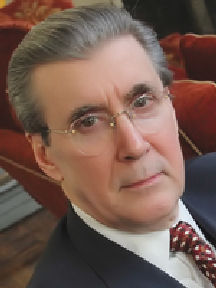For readers who enjoy, as I do, giving books as Christmas presents to political junkie friends and relatives, here are my 2017 gift book picks:
“Shattered:” Inside Hillary Clinton’s Doomed Campaign by Jonathan Allen and Amie Parnes. The inside the beltway journalists have written the best making of the president book since the genre was created by Theodore H. White in 1960.
Shattered tells how Hillary Clinton snatched defeat from the jaws of victory.
Although Hillary was planning a second run for president for eight years, she managed to put together an incompetent campaign team, failed to detect the public’s anger and was incapable of articulating why should she be the 45th president.
“A Man and His Presidents: The Political Odyssey of William F. Buckley Jr.” by Alvin S. Felzenberg.
This fine biography will reveal to a new generation of conservatives that Buckley was more than a celebrity. He was a great writer, an intellectual power house, and the undisputed leader of the post-World War II conservative movement.
Buckley also proved that politics could be fun. As the liberal columnist Murray Kempton wrote: “The process which coarsens every other man who enters it only refined Mr. Buckley.”
“The Death of Expertise: The Campaign Against Established Knowledge and Why it Matters” by Tom Nichols. Professor Nichols adroitly examines why in today’s society, “all voices, even the most ridiculous, demand to be taken with equal seriousness, and any claim to the contrary is dismissed as undemocratic elitism.”
The death of expertise, Nichols explains, does not mean the demise of expert abilities which are required for a society to function.” It means the rejection of existing knowledge and “dispassionate rationality, which are the foundations of modern civilization,” by an ever-increasing segment of our population.
“The High Cost of Good Intentions: A History of U.S. Federal Entitlement Programs” by John F. Cogan. In this eminently readable book, Professor Cogan of Stanford University describes the 200-year history of what has become America’s runaway entitlement programs.
He documents how and why “post-World War II Congresses and presidents have transformed programs whose original purpose was to alleviate poverty among well identified worthy groups into a vast network of programs designated to redistribute income across a broad spectrum of American society.”
“Lenin: The Man, the Dictator and the Master of Terror by Victor Sebestyen.”
This biography is not hagiography. It reveals the father of the Soviet Union to be a petulant, ill-tempered, irascible, merciless, coldly calculating, abusive and vicious man who believed “the ends justified the means.”
Lenin’s legacy, Sebestyen concludes, was “a system of the gulag and the secret police” that Stalin would take “to horrifying new heights.”
“Vox Populi: The Perils and Promises of Populism” edited by Roger Kimball.
In 10 outstanding essays, leading scholars that include Fred Siegel, Victor Davis Hanson, George H. Nash and Roger Scruton, describe the role populism should play in modern democracy.
For the populists “behind the rebellion against the political correctness and moral meddlesomeness that are such conspirators and disfiguring features of our increasingly bureaucratic society” is the question of sovereignty, “of who governs.”
This book attempts to answer that question.
“Friends Divided: John Adams and Thomas Jefferson” by Gordon S. Wood.
This is an extraordinary work written by our nation’s leading historian of the American Revolution. This is not a dual biography. It is a study of the characters and political philosophies of two of our founding fathers.
After reading this book, I concluded Adams was the better of the two.
“Richard Nixon: The Life by John A. Farrell.”
This is the fairest biography I have read of Nixon since Professor Herbert Parmet’s Nixon and His America published in 1990.
Farrell explains why this man with little charm filled the political void after the collapse of the Great Society and provided the voice for the “Silent Majority.”
He also examines Nixon’s demons that drove the Watergate scandal that led to his resignation in August 1974.
Happy reading in 2018!



